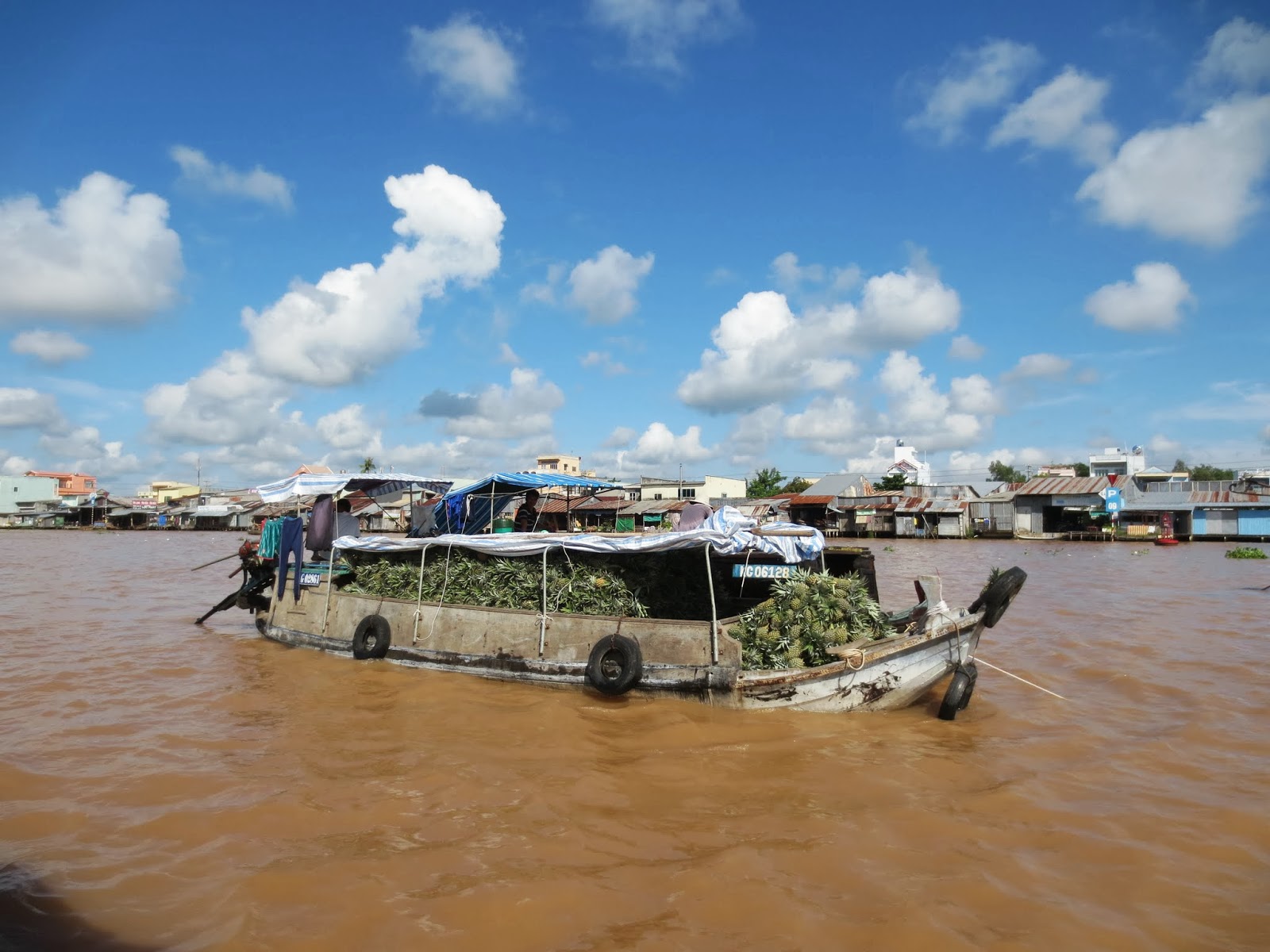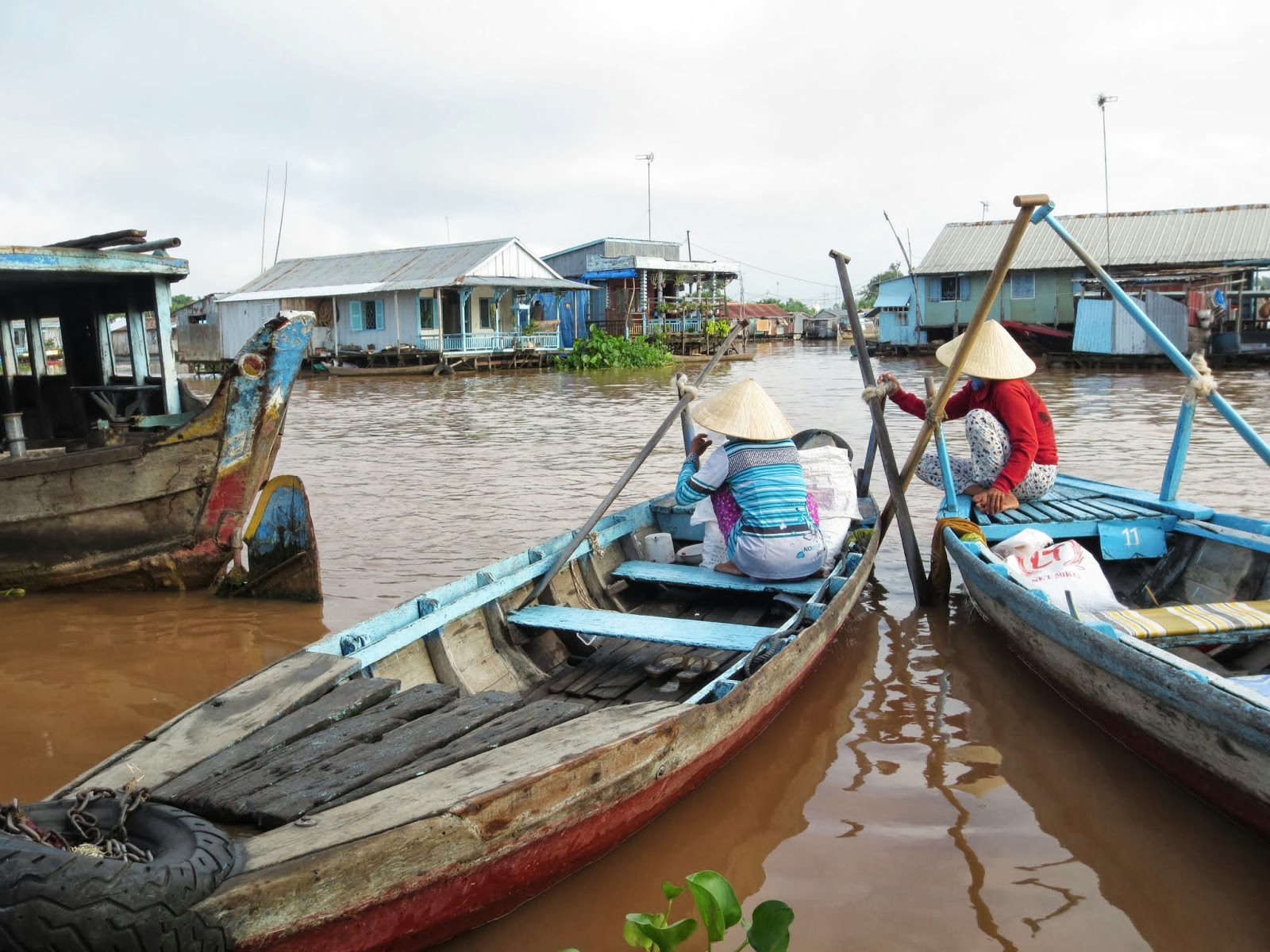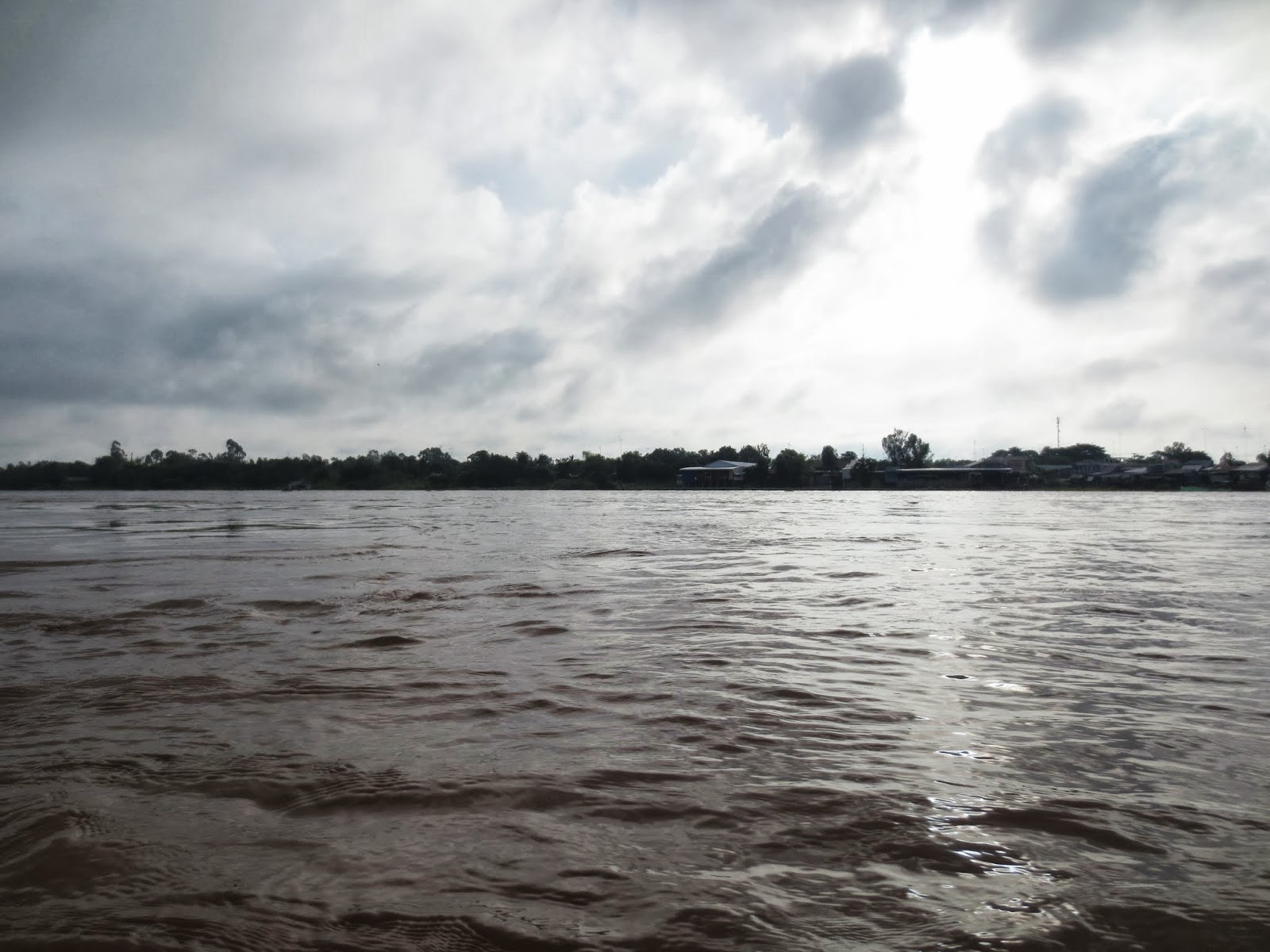Saigon is to Vietnam what Shanghai is to China. The city is the business capital (Hanoi the actual capital city) and more modern compared to the rest of the country. Foreign direct investments flow mainly to this part of Vietnam, which has positive affects to the job market. It is more robust and people from all over the country move to Saigon to participate in the economic growth. One can see a rising middle class that can afford to drink and dine at upscale coffee shops and restaurants (and Western style fast food chains). In 2013, Starbucks and McDonalds started operations in Vietnam with opening their first stores in Saigon. In my opinion, these two companies are a good indicator of the development stage of a region, as they early enter new markets.
The War Remnants Museum in Saigon contains exhibits related to the Vietnam War. Although, the museum tells the story one-sided and propaganda is involved, it is still a must see. The photos are shocking and depressing. We all know war is horrible, but it is usually something that is in the distance. We hear for example stories about Syria in the news, but it doesn't directly affect our life. Therefore, museums dedicated to the atrocities of war are important to remind us what it really means (in Germany are many museums about the Nazi past and crime). In my opinion, America doesn't always look so good compared to how it likes to promote itself. The country dropped the atomic bomb on Japan, used chemical weapons against the Vietnamese, and tortured people in its war on terror. I do believe that the United States is needed in the world to keep the really bad guys in check. It is a country with the fundamental principles of freedom and justice, and it has the resources to enforce them. However, America has also to behave with integrity, so that people don't lose trust in its mission.
I mentioned in an earlier post that I prefer to organize trips on my own. I have to revise this statement. Group tours can make a lot of sense, especially in developing countries. Due to lack of public transportation, the language barrier in remote areas, and the ever-present scams, it can be quite challenging to travel around. Hence, I started to use more organized tours to explore certain hot spots such as the Mekong Delta. These trips are usually 2-3 days and consist of 10-15 people. The main advantage is that transportation and accommodation is organized, so one doesn't really have to worry about anything. The disadvantage is that the standard (cheap) tour doesn't provide any value beyond that; there is not really a guide who can provide valuable additional information. Therefore, I thought about getting a more personal experience with a private guide who is fluent in English and knowledgeable about the area. Sounds like a great idea, but unfortunately costs a minimum of 5x the standard group ticket. So, I postponed this kind of traveling to a future time in my life.
This was one of the best fruit shake places I have been so far. For $1 one gets an amazing smoothie. These little street stalls are all over Vietnam, but they can differ widely in terms of taste and quality. I got lucky to find this one right next to my hostel and enjoyed its shakes twice a day.
Saigon has a vibrant nightlife. Much of it is on Pham Ngu Lao street, which is also referred to as the backpacker area with its abundance of bars, restaurants, hostels, and massage places. In particular, the latter can get annoying over time. One can't walk for a minute without being asked for a massage.
The Reunification Palace is a landmark in Saigon. It used to be the home and workplace of South Vietnam's president during the Vietnam War. This site also marks the end of the war when Saigon fall on April 30, 1975. It is an interesting visit, but there is actually not too much to see. The interior is pretty old-school and it is hard to imagine how people have worked in there.

The Mekong Delta was my last destination in Vietnam before heading to Cambodia. The delta region is in southwestern Vietnam where the Mekong River empties into the South China Sea. The Mekong Delta is a very rich and lush area covered with countless rice fields, and it produces about half of the total of Vietnam's agricultural output. Life in the delta revolves much around the river with many little villages and floating markets that are often only accessible by river. This is definitely a pretty unique place.


I connected from Chau Doc in the Mekong Delta directly to Cambodia. We took a boat up the river and transferred at the international border check point to a bus that drove us to Phnom Penh, the capital city of Cambodia.




































No comments:
Post a Comment